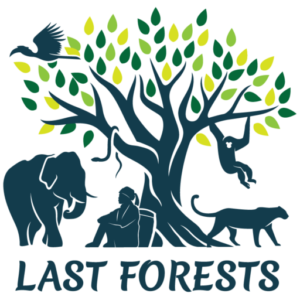hannah-o-kelly-2a790a48
ResearchGate: Hannah_Okelly
Hannah O’Kelly
CONSERVATION DIRECTOR & CO-FOUNDER
I first started working in conservation is Asia in 2007, as a WCS technical adviser for wildlife monitoring. Counting animals in tropical forests, my absolute dream job! But I quickly came to realise that in many cases, even within Protected Areas (PAs), we were simply counting down towards extinction. I became more involved in investigating threats and developing systems for improving the effectiveness of law enforcement, which remains a key aspect of my work today. It still dismays me to what extent building law enforcement capacity at the most fundamental level remains neglected.
During the last 12 years I have been fortunate enough to have spent much of my time in the field, mostly in Cambodia, Laos, and Vietnam. I relish the challenges of conducting field surveys in this part of the world, both technical and practical, and one of the most enjoyable parts is training PA personnel and seeing a crack team come together. Together, we accomplished things that seemed almost impossible, including setting up some of the first large-scale, multi-level monitoring programmes in the Lower Mekong region.
My PhD research involved supplementing extensive law enforcement and wildlife datasets collected in Cambodia with one of the most comprehensive snare assessments undertaken to date. This allowed me the opportunity to delve deep into the data, honing my quantitative skills, and examining the complex relationship between threats, deterrence and wildlife responses. Although day-to-day PA management affords little time for statistical modelling, we are nevertheless constantly striving to understand the impact of our actions, so that we can adapt them accordingly.
Prior to the formation of Asian Arks, I worked as a consultant on a wide range of projects, from helping grassroots NGOs in Myanmar to design Gibbon surveys, to advising the private sector on threat monitoring in biodiversity offset sites. Experiencing the reality of large development and infrastructure projects has been extremely instructive, and has underscored a realisation that biodiversity outcomes are often viewed as one relatively minor component of a much broader development agenda. This is something that I believe needs to change.
I have a keen interest in working dogs and I am greatly looking forward to developing a conservation canines program as a core component of Asian Arks. The underutilised potential of dogs becomes so obvious when we consider how much better they are at so many of the things we do! From invasive species management (e.g. plant detection) to population monitoring (e.g. scat detection) to law enforcement (e.g. anti-poaching patrols).
I think my greatest strength lies in my tenacity, and my deep reserve of stamina. Once I set out on a course to do something, I generally don’t give up until it is done. This is a useful quality to have in our line of work! Another key quality to have in this job is the ability to maintain a sense of optimism, often in the face of tremendous adversity. This is something I have struggled with, and like most conservationists, I sometimes feel the odds are just stacked too highly against us. Yet this is also what motivated me to found Asian Arks, because I must believe there is a bright future for Asian wildlife, and I do believe that we know how to achieve successful conservation. Asian Arks for me is a solution, a light at the end of the tunnel, and through it I can keep on going out there, making conservation happen.



